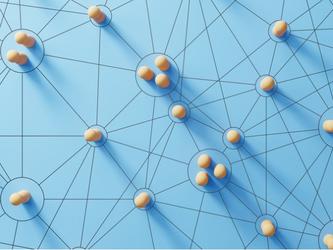The Traitors: An education in biases

This morning, amid Teams messages aligning on sample definitions, of course there was conversation about the finale of Traitors.
If you didn’t watch, what stopped you? It’s fun, gripping and delightfully camp at points. I’m an unashamed mega fan of the series; it’s the only reality TV I’ve ever been motivated to follow, and I’ve gone all-in.
If you want an immersion in how we make decisions – and specifically how we apply biases and heuristics, and are influenced by our social context – then spend a little time witnessing the inter-personal dynamics in the atmospheric castles and manors of the UK, Canada, Australia and New Zealand (and more).
This provides interesting stimulus for considering how we interact with research participants, clients and colleagues. Here are a few biases we can see playing out across seasons.
Affinity bias
This is a tendency to favour people with backgrounds, experiences or interests that align with our own. To stay focused, we favour the immediate, relatable thing in front of us.
This plays out often in subtle ways, with more relatable people being popular and thus often being protected from suspicion – a likeable personality is often implicitly assumed not to be capable of the deviousness of ‘traitoring’. Think Paul in Traitors UK series two as just one example.
But it is seen more overtly where we have participants whose interests or careers elicit a more polarised response, who are quiet and don’t forge strong personal connections, or whose personality traits stand out one way or the other. It can make for uncomfortable viewing at times, where players whose social skills are a little more awkward can be misinterpreted and ultimately rejected by the group.
Dan in the current series is a case in point. He explains how as an autistic person he is particularly equipped to separate logic from emotion. He’s also smart and, to many viewers, likeable. The challenge is that he’s arguably a little too overt that he’s playing the game how it really should be played – selfishly. He reveals what you’re supposed to keep hidden.
This takes us onto considerations for research. Qualitative researchers are supposed to remain neutral, but how often do we truly achieve this – and incorporate discordant viewpoints into conversation? Or instead peg those participants as ‘problematic’ and filter out their input.
How attuned are we to how research participants influence the thinking of those they gel with most? Sometimes we could challenge ourselves more to recruit groups with clearly distinct profiles versus being concerned to achieve a good ‘group dynamic’.
Here are a few other heuristics and biases to consider, in brief:
Attribution Bias
This is a tendency to see a person’s behaviour as explained by their character rather than events. We see this time and again in Traitors. The number of times in the current UK season that players believe other players have the qualities that mean ‘they would make a good traitor’ exemplifies this. Players also often point to a supposed change in behaviour versus day one and interpret this as meaning the person in question is a traitor hiding something. In reality, there are often various other explanations.
The research consideration here is how we think about U&A studies, customer journey studies and segmentations. We tend to over-estimate how enduring certain characteristics we have are, and disregard the influence of life events or events along decision journeys that can shape our outcomes and choices. In many categories, I’d love to dig deeper into understanding the impact of life events, big and small.
Decision-making biases
Then let’s consider various heuristics that relate to how we make decisions. To take a couple that clearly play out in the show, there’s the bandwagon effect (where we opt for what’s popular as a shortcut to a confident choice – which is both a strategy and downfall in Traitors). Or confirmation bias, where we are drawn to details that confirm our own existing beliefs, which on the show is often the route to a wrongful banishment.
When we do decision journey work, we see these heuristics play out time and again. It’s so easy to assume subconsciously that people make independent rational choices and pay more attention to features than they really do. People may have an ingoing preference, then simply (and superficially) look for signals to back up that choice, even in high-ticket purchases.
There are many more connections I could draw between biases evident on Traitors and how we run research. For now, if you’ve not seen the show, perhaps this has piqued your interest and hopefully not given too many spoilers.
And here’s a fun challenge to take this in another direction – can you see any comparisons between the inter-personal dynamics on the show and your workplace? Probably best keep those quiet if so.
Louise McLaren is managing director (London) at Lovebrands

We hope you enjoyed this article.
Research Live is published by MRS.
The Market Research Society (MRS) exists to promote and protect the research sector, showcasing how research delivers impact for businesses and government.
Members of MRS enjoy many benefits including tailoured policy guidance, discounts on training and conferences, and access to member-only content.
For example, there's an archive of winning case studies from over a decade of MRS Awards.
Find out more about the benefits of joining MRS here.














0 Comments